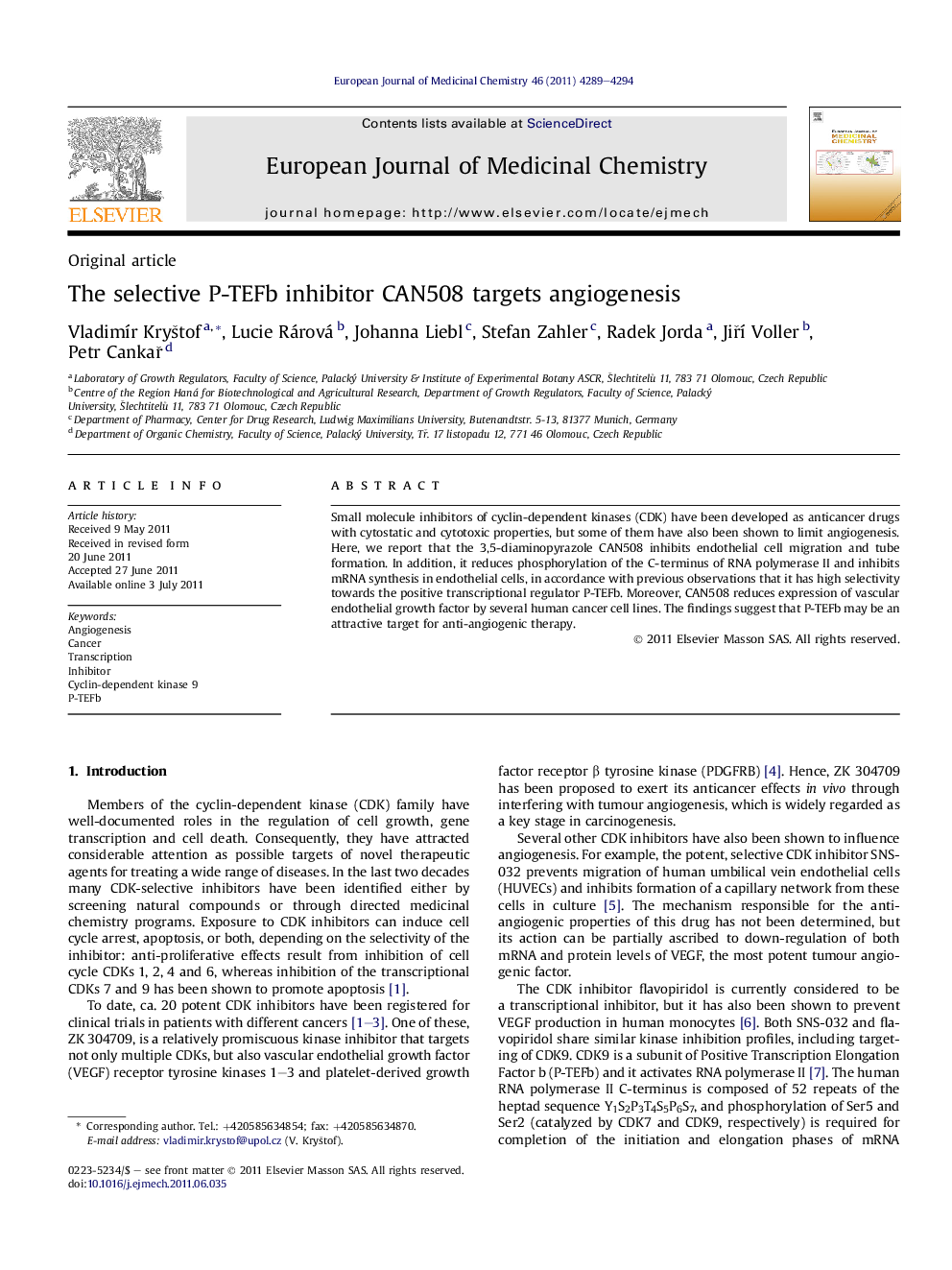| Article ID | Journal | Published Year | Pages | File Type |
|---|---|---|---|---|
| 1396194 | European Journal of Medicinal Chemistry | 2011 | 6 Pages |
Small molecule inhibitors of cyclin-dependent kinases (CDK) have been developed as anticancer drugs with cytostatic and cytotoxic properties, but some of them have also been shown to limit angiogenesis. Here, we report that the 3,5-diaminopyrazole CAN508 inhibits endothelial cell migration and tube formation. In addition, it reduces phosphorylation of the C-terminus of RNA polymerase II and inhibits mRNA synthesis in endothelial cells, in accordance with previous observations that it has high selectivity towards the positive transcriptional regulator P-TEFb. Moreover, CAN508 reduces expression of vascular endothelial growth factor by several human cancer cell lines. The findings suggest that P-TEFb may be an attractive target for anti-angiogenic therapy.
Graphical abstractFigure optionsDownload full-size imageDownload as PowerPoint slideHighlights► Inhibition of P-TEFb in endothelial cells limits their angiogenic-like behaviour. ► CAN508 reduces expression of ICAM-1 in HMEC-1 cells and VEGF in cancer cells. ► CDK9 inhibitors, such as CAN508, may have considerable clinical potential.
